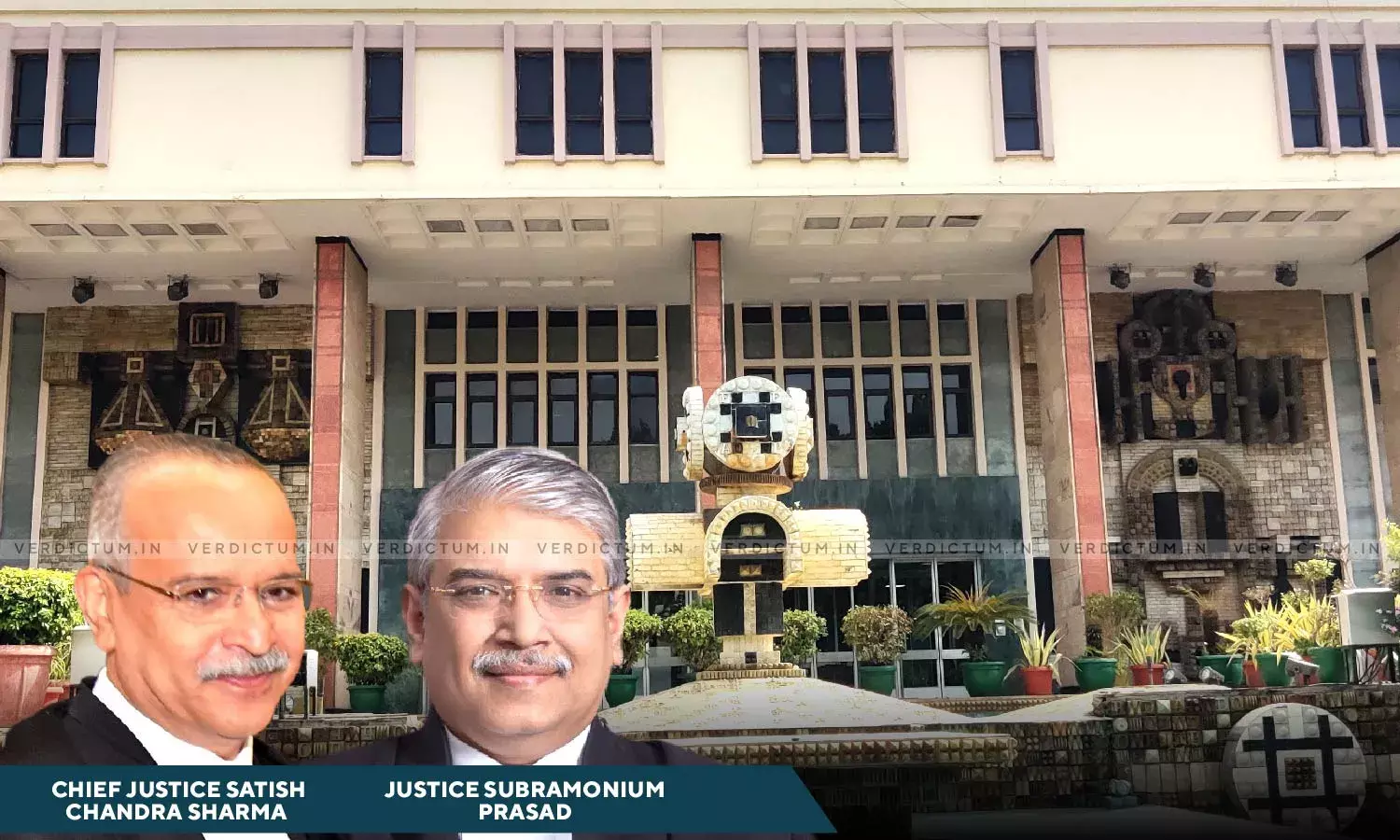Delhi HC Issues Notice To Centre & NPPA On PIL Related To Sale Of Heart Stents, Inappropriate Approval Mechanism

The Delhi High Court on January 10, 2023, issued notice to the Centre and the National Pharmaceutical Pricing Authority (NPPA) with regard to the Public Interest Litigation (PIL) on the sale of coronary/heart stents and an inappropriate mechanism for the same.
The PIL was filed by the petitioner named Mayank Kshirsagar on January 4, 2023, through Advocate Tushar Singh.
A Division Bench comprising Chief Justice Satish Chandra Sharma and Justice Subramonium Prasad has sought the stand of the Centre regarding the sale and marketing of coronary stents in the country only after the submission of adequate supporting clinical studies.
According to the petitioner’s advocate, the notice has been issued by the Court by just looking at the brochure of the government.
The petition said, “The Petitioner is espousing the cause of patients who require cardiac stents/coronary stents including patients having specific indications (medical conditions) like diabetes, higher bleed risk, calcified blockage, long blockage, left main disease, multiple blockages amongst others. The Petitioner is given to understand that for patients having such specific medical condition, only advanced cardiac stents/coronary stents, can provide appropriate treatment.”
The petitioner prayed for the issuance of a writ of mandamus directing the Ministry of Health & Family Welfare to evolve and enforce a robust system of the requirement of supporting clinical study and data and scrutiny/investigation of the same, prior to the grant of approval for marketing/sale and use in India, of cardiac stents/coronary stents by manufacturers/importers.
The petitioner also observed, “… at present cardiac stents/ coronary stents are allowed to be manufactured/ imported and sold, without or with negligible supporting clinical study/ data, and merely based on predicate (device/ literature), submitted by the manufacturer/ importer.”
The petitioner has clarified in his petition that he is not challenging the ceiling price fixation of stents rather he welcomes the avowed objective of the Prime Minister and implementation of the same in fixing the ceiling price of BMS and DES.
The petition further said, “However, bundling a wide range of DES in a single category and fixing a single uniform ceiling price for all Coronary DES resulted in withdrawal of advanced DES brands from India, denying adequate access of appropriate DES to patients, who have specific medical condition like diabetes, higher bleed risk, calcified blockage, long blockage, left main disease, multiple blockages amongst others.”
The petitioner informed that currently, India imports over Rs. 35,000 Crore of API, and nearly 70-80% of the imports are from China and that because of averaging of the price of DES, it would become uneconomical for sale of advanced DES, resulting in non-availability to the common man.
“Unlike other elective surgeries, a patient cannot wait for one-time import in case of CAD and implant of Stent must be conducted, within the golden hour after heart attack”, the petitioner further informed.
In June-July 2021, the petitioner's cousin had a coronary disease and suffered from a heart attack. The Doctors said that two main arteries are clogged to the extent of over 90%, coupled with atherosclerosis and the patient was advised that angioplasty must be performed, and two Stents would have to be inserted. Due to such an incident, the petitioner became aware of the issues in relation to CVD, angioplasty, stents, etc., and recently, while interacting with members of the Institute of Medicine and Law for Doctors for lectures, he explored the issue further and sought views from Doctors including Cardiologists and became aware of the issues.
The petitioner noted, “People of South Asian descent, which includes countries like India, Pakistan, Bangladesh, Nepal, Sri Lanka, Bhutan and the Maldives, have four times the risk of coronary artery diseases (in short "CAD"), compared to the global general population, and people of South Asian descent develop the disease up to a decade earlier. CAD is the most common form of cardiovascular diseases (in short "CVD"). CVD is on the rise in India also due to various factors such as ageing, lifestyle, smoking, food habits, and higher income levels.”
It was also informed through the PIL that globally, Cardiovascular Diseases accounted for 1.79 Crore deaths in 2019, and out of 1.79 Crore deaths, 1.52 Crore people died of heart attack and stroke, and that CVD accounts for 31.5% of all deaths in females and 26.8% of all deaths in males.
The petition further highlighted, “It is estimated that in low-income countries like India, Non-Communicable Diseases (in short "NCD") which includes CVD would contribute 50% of the total disease burden, leading to 2.33 Crore deaths from CVDs alone, by 2030. India accounts for 60% of the world's heart disease cases with a projection of around 7 Crore cases by 2025.”
The petitioner has said that the respondents without considering such issues have erroneously and without proper consultation bundled a wide range of DES in a single category.
The PIL said that the right to life under Article 21 of the Constitution includes the right to all reasonable health facilities.
The matter will therefore be heard next in the month of May.
Cause Title - Mayank Kshirsagar v. Union of India & Ors.


